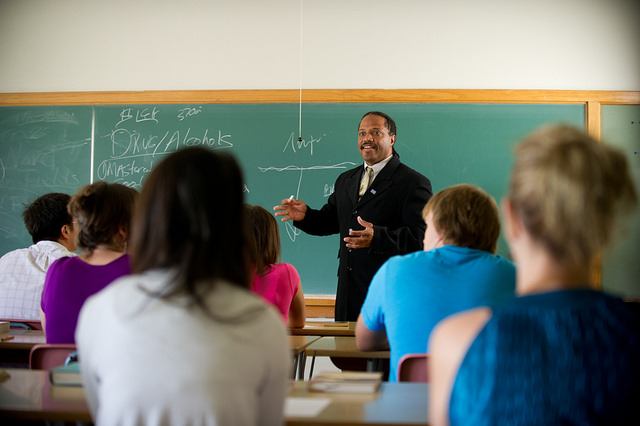Today marks a special day here at Higher Ed Professor. It was one year ago that the site went live. Every Monday and Thursday, I’ve tried to deliver content that people in higher education would find interesting and useful. The response has been tremendous and I have learned so much along the way. In today’s post, I want to share a few insights and things I’ve learned during the year. I also have two special requests for everyone at the end of the post.

Photo credit: Roberto Cacho Toca
When I first started Higher Ed Professor, my hope was the site would be a resource for faculty and administrators in colleges across the country.
I had no idea how great the response would be and have been thrilled at how the information has been shared.
The blog has been viewed in over 100 countries and 49 states.
(Hey Wyoming, what did I ever do to you? Way to mess up the statistics)
The number of page views continues to grow with more than 12,000 total during our first year.
Clearly, there is room for an ongoing conversation about higher education issues.
One of the most fun aspects of this journey has been hearing from people with interesting perspectives on some of the issues that have come up over the year. I hope we get to do more of this during our second year.
Recently, I have had several people ask me about the blog and what I’ve learned from the process. Three things immediately come to mind.
First, writing posts twice a week has forced me to keep writing. We all know how important it is to maintain the writing muscle. Even when things are crazy, I have managed to crank out a post. My best guess is that I’ve written about 250 pages of text this year just in blog posts. Forcing myself to do this has helped me be productive in all of my writing efforts.
Second, blogging as helped my voice as a writer and researcher. I always aim to make posts that are a quick read and even easy to skim. My strategy has been to share an interesting idea or two that might spark something in a reader. This has encouraged me to lose all of the academic jargon that often obscures ideas in scholarly publications. My scholarly writing is better for having to explain ideas in 600-700 word blog posts.
Third, I have become a more thoughtful observer of what is happening both in higher education nationally and around me personally. When you have to produce two posts a week, you are constantly searching for inspiration. From class conversations to reading the Chronicle and InsideHigherEd, I believe I’ve become a more thoughtful observer of higher education. My hope is this translates to better posts.
As many benefits as I’ve gotten from Higher Ed Professor, I hope many of you have found a few nuggets that were thought-provoking or helpful in some way.
In that spirit, I have two requests that I would like to make:
1. If you have found the site helpful or enjoyed reading Higher Ed Professor, please share with a colleague or post to your social networking sites. I truly hope this content is helpful and if so want to share it with as many people in higher education as possible. If you’ve been thinking about a birthday present to celebrate our first birthday, sharing the site would be perfect!
2. In order to be more responsive, I would love to hear from you about ideas or areas that you’d like to see me discuss over the next year. I’ve found some of the best posts over this year were suggestions by readers, colleagues, and friends. What would you like to see discussed in a post? What are you struggling with right now? Have you always wondered why colleges do something in a certain way? I would really appreciate a quick email or tweet with a couple of ideas for posts.
When you publish a research article, it often seems to just go into space with few responses or feedback from readers. Fortunately, this format provides plenty of opportunities to engage and have a conversation.
Finally, I want to thank all of you who have read the blog and especially those who have signed up to receive our new posts via email (if you haven’t done this, sign up in the box in the upper right corner).
Your response has been more than I expected and I’m looking forward to our continuing conversation!




